Africa
European Union announces new asylum measures
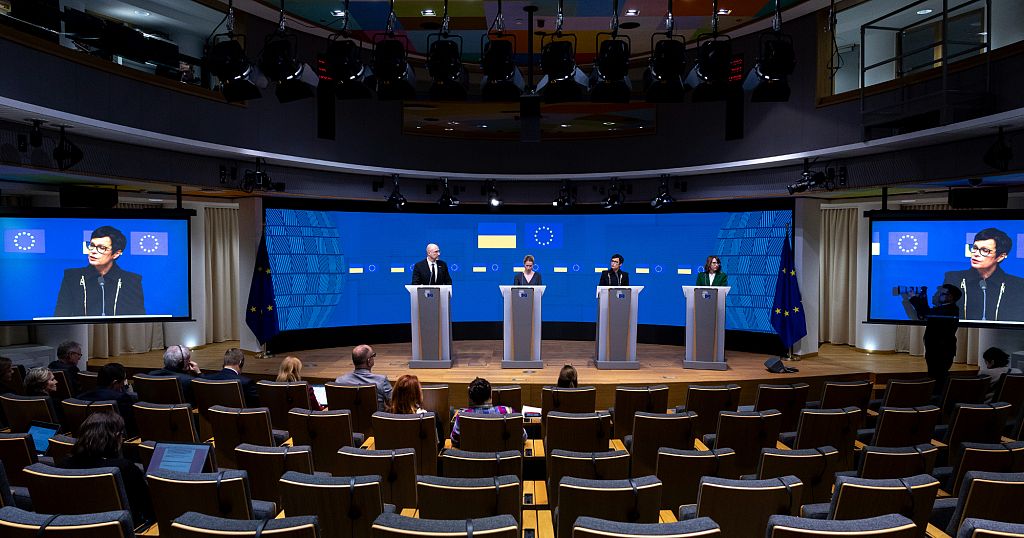
Migrants from Bangladesh, Colombia, Morocco and Tunisia are unlikely to be granted asylum in Europe and should have their applications fast-tracked so they can be sent home more quickly, the European Union’s executive branch said on Wednesday.
The European Commission said that seven countries – also including Egypt, India and Kosovo – should be designated “safe third countries.” Applications by their citizens for international protection would be wrapped up in 3 months rather than the usual 6.
“We streamline and we speed up the processing of asylum applications, but we do not cut back on fundamental and human rights,” said European Commission spokesperson Markus Lammert.
“What it does is it allows for faster procedures for those whose asylum applications are likely to be unfounded,” he added.
In total, more than 200,000 people from these countries applied for asylum last year.
A year ago, E.U. nations endorsed sweeping reforms to the bloc’s failed asylum system. The rules were meant to resolve the issues that have divided the 27 countries since well over 1 million migrants swept into Europe in 2015, most fleeing war in Syria and Iraq.
But the new rules are not set to enter force until at least June 2026, and the commission is desperate to speed up procedures, including by deporting people more quickly, to ease pressure on migrant reception facilities.
“This E.U. list brings harmonization across member states,” said Lammert. “And this will ultimately help reduce secondary movements and also asylum shopping.”
The plan must be endorsed by E.U. member countries and the European Parliament before it can enter force.
Under it, asylum applications by people coming from countries that are candidates to join the E.U. – Albania, Bosnia, Georgia, Moldova, Montenegro, North Macedonia, Serbia and Turkey – would also be fast-tracked.
On top of that, E.U. members could speed up proceedings for people coming from countries where 20% or less of applicants are granted international protection in Europe. The so-called recognition rate for the seven “safe third countries” is 5% or less.
Africa
Tanzania opposition says jailed leader not seen by family, lawyers
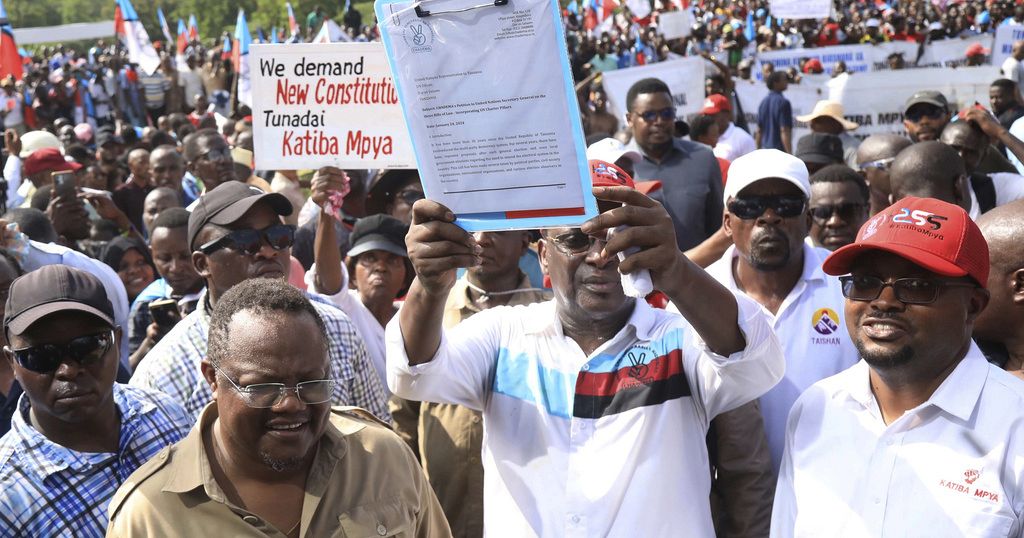
Tanzania’s main opposition party said it had failed to get access to its leader who is in detention on treason charges.
CHADEMA said Friday that the family and lawyers of Tundu Lissu had failed to see him at a Dar es salaam jail where he had been kept since his arrest on April 9.
In a statement, the party said it held the Tanzanian government and Prisons Service responsible ble for Lissu’s safety.
The Prisons Service quickly denied that Lissu had been moved from jail.
In a statement, the agency dismissed CHADEMA’s concerns as misinformation.
“We would like to inform the public that Tundu Lissu is safe and he is still detained at Keko Prison in Dar es Salaam according to the country’s laws and procedures,” the Service said in a statement.
Lissu came second in Tanzania’s 2020 presidential election. Last week, he was arrested and later charged with treason after a speech demanding election reforms.
Prosecutors said the speech called for an uprising.
With another presidential vote on the horizon, critics say President Samia Suluhu Hassan’s government has ramped repression against the opposition.
This week, the election commission banned CHADEMA from taking part in elections after the party refused to sign a document pledging to obey the commission’s orders.
Africa
DRC: Kabila arrives in rebel-held Goma after return from exile
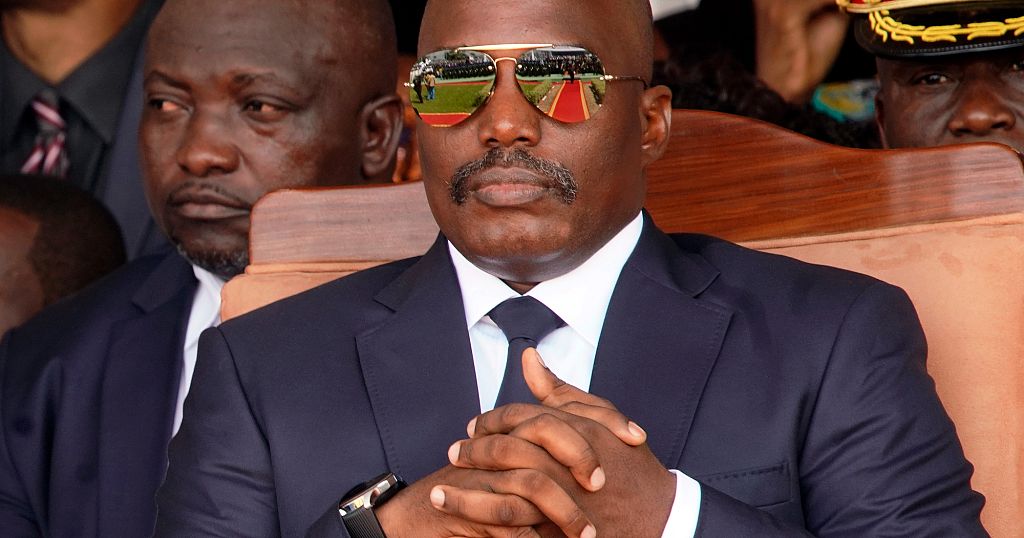
Former Congolese President Joseph Kabila, accused by the government of supporting rebels in the country’s east, returned to Congo from self-imposed exile on Friday, arriving in rebel-held Goma city, two of the ex-president’s associates and a rebel official said.
Kabila, who left Congo in 2023, came to Goma “to participate in peace efforts” in the conflict-hit east where Rwanda-backed M23 rebels have seized large swaths of territory, including the strategic eastern city, said a close aide of the former president.
Another associate of Kabila’s and a senior M23 official also confirmed the former president’s return. The three spoke on the condition of anonymity because they were not authorized to speak to the media on the topic.
Congo’s decades-long conflict escalated in January, when the rebels advanced and seized Goma, followed by the town of Bukavu in February. The fighting has killed some 3,000 people and worsened what was already one of the world’s largest humanitarian crises, with around 7 million people displaced.
Kabila seeks “to take part in efforts to find peace in the country,” his aide said. “Everyone is talking about Congo without the Congolese … this is not normal.”
The former president is expected to address Goma residents at some point, according to his associate, who accompanied Kabila on the trip.
It was not immediately clear how long Kabila would remain in Goma or what his plans were.
Kabila’s long-expected return is seen as controversial, with some analysts saying his presence in Goma could worsen tensions between the rebels and the Congolese government, especially amid ongoing efforts to negotiate a ceasefire.
Representatives of Congo’s government and M23 met in Qatar earlier this month as the Gulf Arab state leads renewed efforts to get both parties to return to dialogue and recommit themselves to a peace deal they each accuse the other of violating.
Christian Moleka, a political scientist at the Congolese think tank Dypol, said it was likely to have a “detonating effect on Congolese politics,” and strengthen the accusations by “those who believe that there is a connection between him and the M23 rebellion.”
Congolese President Felix Tshisekedi last year accused Kabila of backing the rebels and “preparing an insurrection” with them, a claim Kabila denies.
Kabila led Congo from 2011 to 2019, taking office at the age of 29 and extending his mandate by delaying elections for two years after his term was ended in 2017. His father, former President Laurent Kabila, was assassinated in 2001.
After leaving Congo, Kabila lived in South Africa and other African countries.
Africa
Iran seeks Russia’s support for its nuclear talks with US
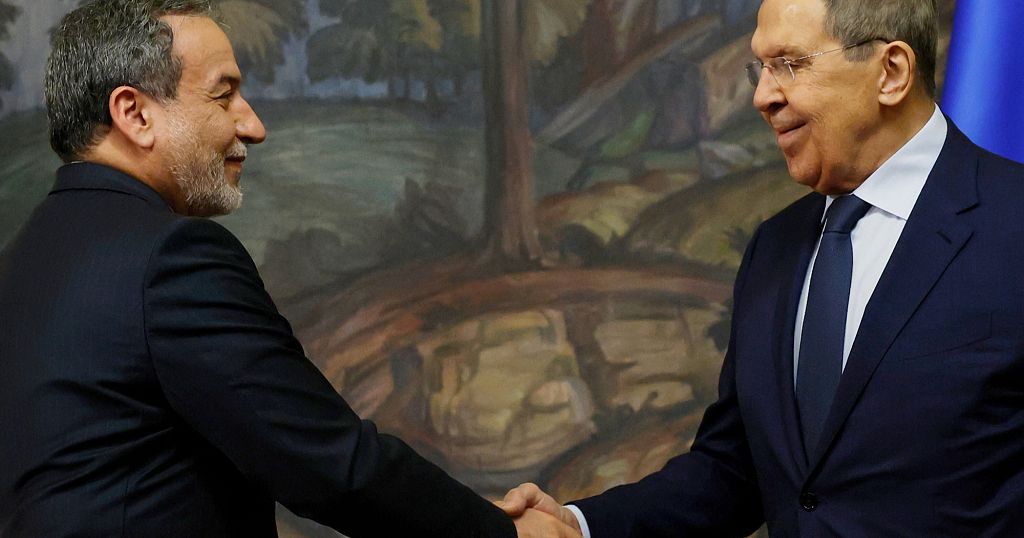
Iran on Friday sought support from Russia over a possible deal with Washington over Tehran’s rapidly advancing nuclear program, ahead of a second round of talks this weekend in Rome.
Iran’s Foreign Minister Abbas Araghchi said he briefed his Russian counterpart, Sergey Lavrov, on the first round of talks in Oman last week and praised Russia’s role in Iran’s 2015 nuclear deal with world powers that led to lifting of sanctions in return for Tehran’s cap on its nuclear activities.
“We are hopeful, and we expect Russia to continue its supportive role in any new agreement,” Araghchi said in a joint news conference with Lavrov in Moscow.
The 2015 nuclear deal collapsed with Trump’s unilateral withdrawal while Iran abandoned all limits on its nuclear program, and enriches uranium to up to 60% purity — near weapons-grade levels of 90%.
Lavrov said Russia was ready to mediate and assist in the nuclear talks.
“We are ready to help, mediate and play any role that, from Iran’s point of view, will be useful and that will be acceptable to the United States,” Lavrov said. “We proceed from the fact that the only option for an agreement, as the (Iranian) minister just said, is an agreement exclusively on nuclear issues.”
Lavrov said Araghchi met with Russian President Vladimir Putin on Thursday in talks that “emphasized the unprecedented dynamics of (the) political dialogue” between Moscow and Tehran. He did not give details, beyond saying Putin was “very pleased” with the talks.
Araghchi said he gave Putin a message from Supreme Leader Ayatollah Ali Khamenei, who has a final say on all state matters in Iran. He did not elaborate.
In Paris, U.S. Secretary of State Marco Rubio expressed hope that talks with Iran are ″fruitful, and that they’re that they can lead to something. We would all prefer a peaceful resolution and a lasting one.″
Rubio met with British, French and German officials in Paris and pressed them to maintain sanctions against Iran instead of allowing them to run out.
″We should all anticipate, based on the public comments yesterday, that they’re about to get a report from the IAEA that says not just is Iran out of compliance, but Iran is dangerously close to a weapon, closer than they’ve ever been,” Rubio said.
He added: “And then they (the Europeans) are going to have to make a decision about whether they want to reimpose these sanctions. And if Iran is out of compliance, they have to reimpose the sanctions.″
-

 Conflict Zones2 days ago
Conflict Zones2 days agoHaiti in ‘free fall’ as violence escalates, rights group warns | Armed Groups News
-

 Sports2 days ago
Sports2 days agoJu Wenjun: Chinese grandmaster makes history by winning fifth Women’s World Chess Championship
-

 Sports2 days ago
Sports2 days agoAaron Boupendza: 28-year-old former MLS player dies after falling from 11th floor balcony in China
-

 Lifestyle2 days ago
Lifestyle2 days agoRalph Lauren stays closer to home this time with intimate Manhattan gallery show
-

 Sports1 day ago
Sports1 day agoLos Angeles Rams honor first responders by conducting 2025 NFL Draft from Los Angeles Fire Department
-

 Education21 hours ago
Education21 hours agoHarvard’s battle with the Trump administration is creating a thorny financial situation
-
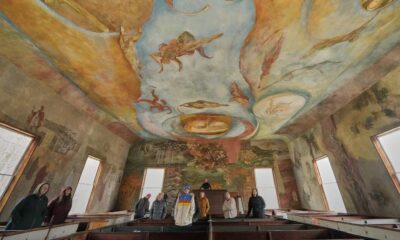
 Lifestyle2 days ago
Lifestyle2 days agoLook inside Maine’s ‘Sistine Chapel’ with 70-year-old frescoes
-

 Lifestyle2 days ago
Lifestyle2 days agoThousands of pilgrims trek through New Mexico desert to historic adobe church for Good Friday




